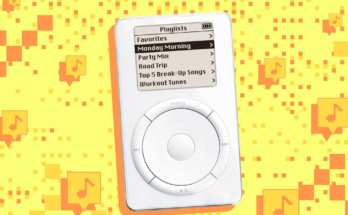The fortunate among us don’t use Twitter at all, which undoubtedly bodes well for their peace of mind. But it also means they’re missing out on a major front in the modern culture war. And if you aren’t one of those compelled to dive repeatedly into the service’s vortex of misinformation and perpetual outrage, you missed out on the rise and fall of a particular villain who came to dominate social media discourse over the weekend.
Twitter dubbed him Bean Dad (in reality, he’s musician and podcaster John Roderick), so-called because he shared a (since-deleted) multi-tweet story about denying his daughter a delightful snack of baked beans—or rather, making her work very hard to earn said beans. According to Bean Dad’s thread (which a helpful Twitter user has archived here), his 9-year-old daughter was hungry but couldn’t figure out how to use a can opener to access her dad’s proffered snack of baked beans. Despite her mounting frustration, Bean Dad refused to be a Bean Father; he made his daughter tinker with the gadget through trial and error in an effort to force her to figure out how to use it on her own. Per his telling, it took the presumably hungry girl six hours to open the can, a saga Bean Dad recounted in somewhat gleeful fashion as the rest of Twitter watched, mouth agape. Then, the pile-on began.
People quickly began debating the merits of Bean Dad’s methods, many of them labeling his actions abusive (and though he stoked Twitter’s collective ire, it isn’t really at all evident that Bean Dad is a terrible father behind closed doors). His newfound villainy churned the waters; many of his old tweets resurfaced, and they weren’t a great look either. Before long he was being blasted as a racist, with threads circulating featuring screenshots of tweets using racial slurs and anti-Semitic language.
Roderick (who subsequently deleted his Twitter account) has since apologized for the whole debacle, including many of his past online remarks, which he admitted were indeed “racist, anti-Semitic, hurtful and slur-filled”—though they were written, he claims, with ironic, sarcastic intent.
Yeah, don’t do that.
Even if you’ve never committed a viral gaffe (or far worse), there’s a powerful lesson to be learned from the foibles of Bean Dad: For anyone trying to make a splash in a public forum—like, say, Twitter—always be aware of the broader context of your remarks, and of who comprises your audience. This bit of social media guidance was neatly distilled in another Twitter thread by writer Catherynne M. Valente, who conveys not only why Bean Dad sparked such an uproar, but how.
Sarcasm doesn’t really work online
If Bean Dad meant for the whole “can of beans” caper to be a joke, he certainly went about it the wrong way. As Valente explains, cracking jokes about something distasteful is always a little more appropriate if the people you’re around know you well enough to understand that your joke is an effort to lampoon the real assholes.
Being edgy can be cool—maybe—when you’re within the comfort zone of your friend group, but if you’re in a room full of strangers, you can’t be surprised if they take you at face value. Especially when the “room” is “Twitter” and your joke comes in the form of a context-free screenshot.
Valente goes on to explain how this applies perfectly to the whole Bean Dad saga:
Above all, there’s a certain type of person who thinks their brazenly offensive online remarks will be interpreted as some kind of comedic levity—because as they see it, they’re intrinsically good people at the end of the day.
Roderick said as much in his apology (which is actually a pretty good one, as these things go):
What I didn’t understand when posting that story, was that a lot of the language I used reminded people very viscerally of abuse they’d experienced at the hand of a parent. … I was ignorant, insensitive to the message that my “pedant dad” comedic persona was indistinguishable from how abusive dads act, talk and think. … I reread the story and saw clearly that I’d framed it so poorly, so insensitively. Bean Dad, full of braggadocio and dickhead swagger, was hurting people. I’d conjured an abusive parent that many people recognized from real life.
Alas, the internet doesn’t always account for context or intent. And if you encounter a jesting tweet that riles you, it won’t come slapped with an irony warning. The wrong kind of so-called joke might even get you in real-life trouble, as film director James Gunn found out in 2018 when some of his very tasteless old tweets were weaponized by a right-wing media personality, eventually resulting in Disney booting Gunn from the director’s chair for Guardians of the Galaxy, vol. 3 (though he was subsequently rehired a year later, not everyone can hope to be so lucky).
The overarching takeaway, when it comes to most dumb tweets of this nature, boils down to a philosophy of abstinence: You should basically just never tweet that way.
Like every other Twitter villain who comes to dominate the website’s life-cycle for a day, Bean Dad will eventually be canonized by a few, but forgotten by most. Valente’s Twitter thread provides a good lesson on how to stay mostly anonymous online, which is really something to strive for.



